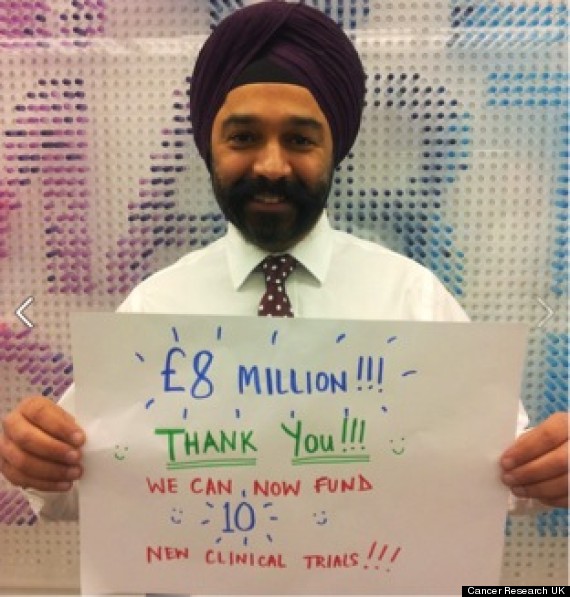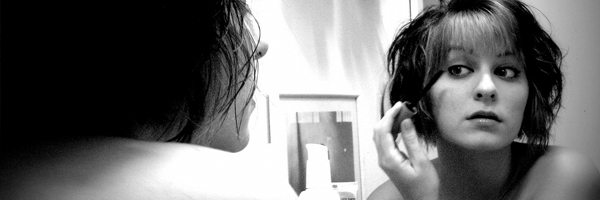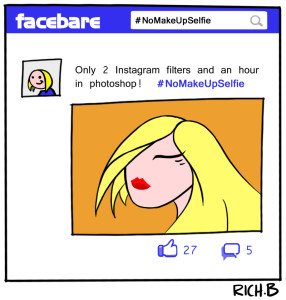The problem with the ‘No Make up selfie trend’
Anyone who has been slightly active on Facebook over the past week will be well aware of the newest social media campaign to sweep the nation. Women across newsfeeds everywhere have taken a stand, done the unthinkable and bared their cosmetic free face, all in the name of breast cancer.
In the wake of ‘NekNominations’, the ‘No Make-Up Selfie for Cancer Awareness campaign’ is a happy new trend and the intentions are undoubtedly good. However ever since the pictures of my foundation-less friends began to rack up, something just didn’t quite sit right.
Now, I fully believe in using social media as a positive platform to not only raise money but also awareness on pressing issues and the ‘No Make-Up Selfie’ undoubtedly falls within this idea; however I also believe that nothing should be beyond criticism, no matter how much good it has done. So while I congratulate and applaud all those who have contributed to the phenomenal £8 million and counting, the monetary gains are not what trouble me, what does, is what this campaign says about society and women’s role today.

Photo courtesy of the Huffington Post
The idea being that by wearing no makeup women were meant to feel exposed and vulnerable just as those suffering from cancer do.
It began simply enough, a front facing camera, a face wipe and a hashtag were all you needed to do your bit and raise awareness for a worthy cause. The idea being that by wearing no makeup women were meant to feel exposed and vulnerable just as those suffering from cancer do. Although this narcissistic selfie has happily evolved to include donations, the same core issues still apply.
Firstly, the idea that the vulnerability of your friends seeing you without make up is in any way comparable to breast cancer is quite frankly, utterly ludicrous and incredibly insensitive. What does putting a barefaced selfie on the same spectrum as a life threatening disease say about our society?
Secondly, the mantra that ditching the mascara is an act of defiance and something to be applauded is just plain wrong. I am someone who knows all to well the joys that come from overindulgence in the makeup aisle of Boots, but the idea that displaying my natural face is an act of courage is a worrying one. To go au naturel shouldn’t warrant it’s own hashtag, let alone a stream of congratulatory comments. In 2014 a woman without makeup shouldn’t be seen as a source of strength, just a non-event. Being without makeup may not be the norm for most but for those who do happily ignore societal pressures and are perfectly content to do without, this campaign only seeks to alienate them. Pointing out their abnormality can only reinforce the idea that by not wearing makeup they are somehow less feminine and at odds with the rest of their gender.
To go au naturel shouldn’t warrant it’s own hashtag, let alone a stream of congratulatory comments. In 2014 a woman without makeup shouldn’t be seen as a source of strength, just a non-event.
I also take umbrage with the idea that the trend has raised awareness. There is no doubt the past week have been a witness to a wonderfully successful fundraising campaign but are any of us any more informed about breast cancer than we were a week ago? The only thing I feel more aware about is the sins great lighting and the perfect instagram filter can hide. The No Makeup selfie does not make people more aware of the trials of chemo the symptoms to look for, nor the steps to take if you have them.
The No Makeup selfie is targeted at women and this makes it seem like breast cancer is a ‘woman’s issue’ when in reality cancer is everybody’s issue be it testicular or breast we should all fundraise and be more aware and dividing campaigns by gender may be effective marketing but can’t do any real good for the cause in general.
It highlights the idea that not wearing makeup is an act of bravery for women but demeaning for men; that god forbid I should be seen without eye shadow or a guy with it?
That being said I have seen a few boys don the makeup for the cause and although I have found the pictures amusing and light hearted what does this say about gender norms? It’s fearless of a women to show their normal face but humiliating for men to subject themselves to what I’m expected to wear everyday? It highlights the idea that not wearing makeup is an act of bravery for women but demeaning for men; that god forbid I should be seen without eye shadow or a guy with it?
Nevertheless, I have seen some genuinely hilarious faces being pulled, helpful articles posted and adorable baby pictures thanks to this campaign and I could not be happier about the large sums donated for a cause so close to my heart. While I may not argue with the amount raised, what I can argue with is what the no makeup selfie ultimately signifies within our society and at the end of the day surely wearing or not wearing makeup, no matter your sex, shouldn’t be dependent on anything apart from whether or not you want to.
[divider]
Photo: flickr/msdiamondfarah


Comments (8)
I agree wholly – most charitable events are based on vapid commercialism and degenrefying of masculinity and femininity. Growing a moustache in November is, IMHO, the dumbest thing I have ever heard. It has nothing to do with the charity – why don’t you just GIVE the money instead? The people on the other side don’t give two or three fucks how you got the money, and why should you care either? Philanthropy is about the end, not the means.
Great article though I feel it is a little one-sided and would like to make a few comments.
Firstly, I think something that is important and has been neglected by this article is that the no makeup selfie trend was not actually started as CR campaign, but rather it grew organically through social media. It is true that CR encouraged the trend and set up a number and code to text donations, but the claims made in this article that ‘the idea that the vulnerability of your friends seeing you without make up is in any way comparable to breast cancer is quite frankly, utterly ludicrous and incredibly insensitive’, while arguably true, surely arises due to the fact that this campaign was not tailored to link cancer to not wearing make up, but that CR used its popularity to encourage donations. There may well be people who took part in the campaign that were insensitive to the cause, but that is a criticism worthy of them rather than the campaign as a whole.
My second point concerns the argument that bearing your natural face shouldn’t be an act of courage. I agree that it shouldn’t and it does reflect badly upon our society. However, the truth is that for many people the idea of publicly presenting themselves without makeup is daunting and feared. Saying that something shouldn’t be an act of courage does not deny the fact that it is an act of courage for some people, and I personally think that something which encourages people to do things that push them out of their comfort zone as well as raising money for charity should not be criticised for reflecting societal pressures, but should be supported. I disagree that it alienates those who regularly go without makeup as it emphasises that they do something perceived as brave on a daily basis. While it does present them as different to the majority of their gender, it does not make them seem ‘less feminine’ but rather it illustrates their perceived bravery, which is a positive difference.
My last comment concerns the difference in reception of makeup-less women and men with makeup on. This article says that ‘It’s fearless of a women to show their normal face but humiliating for men to subject themselves [to wearing makeup]’, criticising the campaign because it presents men wearing makeup in a ‘demeaning’ way. I’d like to ask the writer why they feel it demeans men? I don’t think a man posting a selfie in makeup is demeaning. For most men, a selfie without makeup would be the norm, and so they are encouraged to put on makeup to present the world with an atypical photo of themselves. It is true that most men who take makeup selfies find the idea funny and play up to this comedic angle, but I believe what they find funny is not that they are being subjected to makeup, but rather that they find the abnormal funny. The fact that the atypical male makeup selfies were presented and received in a comedic way, while the female atypical no-makeup selfies were received with declarations of courage, illustrates that as a society we do not find women without makeup funny, or so unusual that we find it amusing, and this is encouraging.
Despite the negative tone of this comment, the article is interesting and insightful, I just wanted to provide some other viewpoints about this popular campaign.
Thanks so much for your comment Rose I understand there are more nuances to this issue than I was able to put in my article and appreciate you taking the time to comment and add to the debate.
I completely agree with your first point, this part of my criticism
is best directed at those individuals, however, I do think that the idea
of the vulnerability of cancer being in some way comparable to the selflies may not have been at the forefront of peoples minds, but unfortunately I do not share your opinion that the campaign evolved to the point that it was not still an underlying theme.
I thought about including your second point in my article as I agree
that for some being without make up is an issue of confidence and women can feel empowered by posting. However, by deciding what is brave and what is comedic for either sex, the campaign is reinforcing gender norms which I do not believe is a good thing. Although it may be the case for the majority I feel that the campaign upholds societal expectations by reiterating what is normal and abnormal, at the end of the day it is still laughable and lighthearted for men to wear something that I am expected to wear and I am brave for revealing my bare face. By
debating the normative I do not mean to take away from those women who feel empowered but to point out the underlying issues with reinforcing these societal expectations.
Although I see your point of view I stand by my criticism that it does
alienate those men who wear make up and those women who don’t for the reasons I’ve pointed out here and in my article. Ultimately I do believe this is a complex issue and as with many things a conversation is often more helpful but I hope this has helped you to understand my point of view.
Also I don’t know if you’ve read this but Cat Turhan wrote a great blog
post highlighting the other side of the debate that I think you’d enjoy
http://www.warwicksu.com/blogs/blog/catturhan/2014/03/26/Bare-Faced-Truth-on-the-nomakeupselfie-and-change-in-campaigning-culture/
So would you also condemn the popular act of shaving one’s head for charity or in support of a friend undergoing treatment for cancer?
No not at all because shaving your head is highlighting what happens during chemo (for example in solidarity for a friend like you said), and it doesn’t reinforce oppressive gender stereotypes and societal expectations.